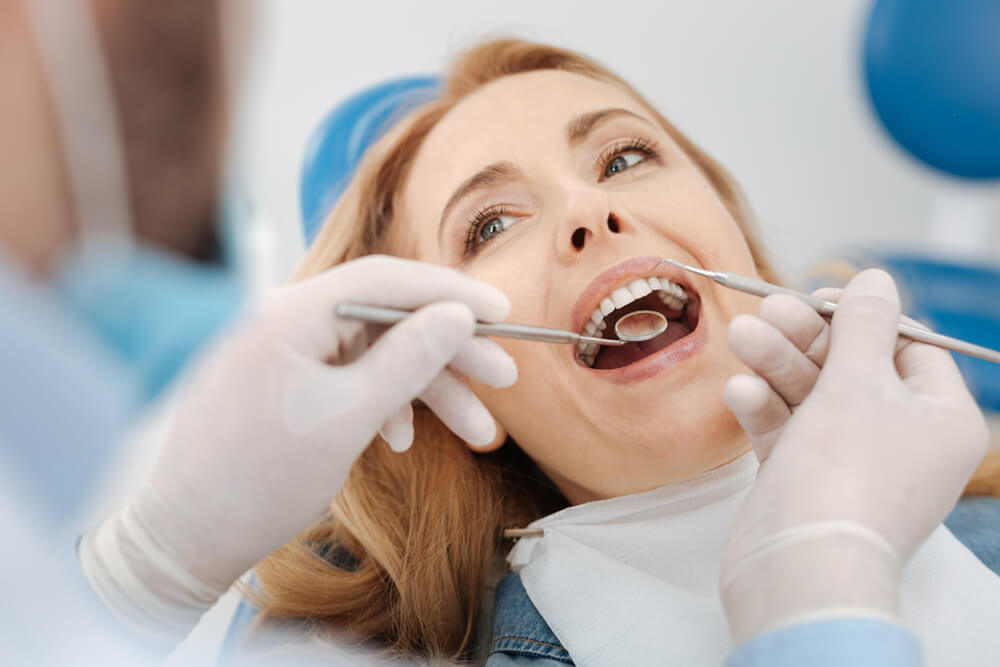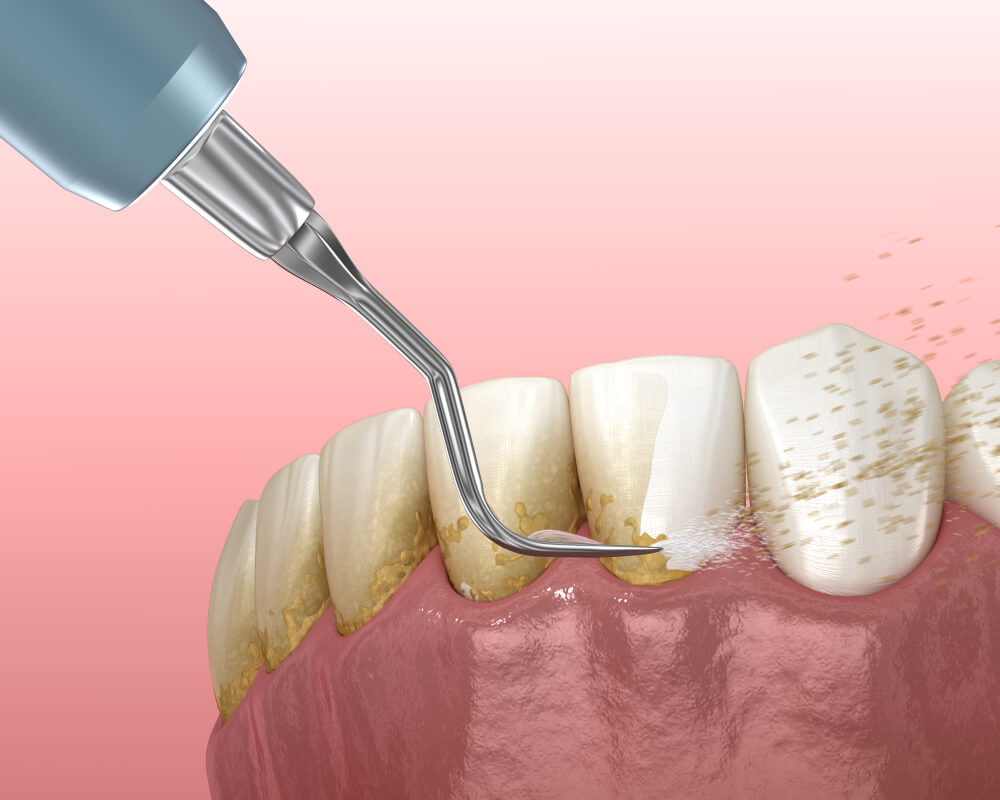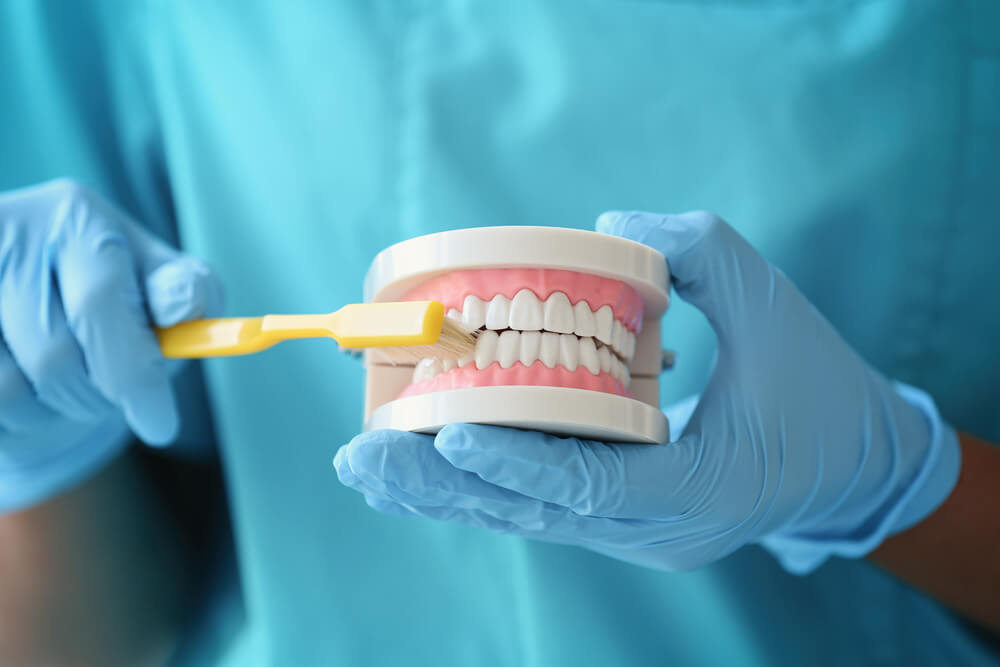This treatment is for you if…
You want to keep your teeth, gums and mouth as healthy as possible.
What is preventive odontology?
Preventive odontology is a scientific term that covers many things that you must do regularly to maintain good oral health.
It refers to any activity that works to prevent oral health problems. The approach of preventive odontology is usually to maintain your teeth, gums and mouth as healthy as possible to prevent tooth decay, gum disease and other problems.
The definition of preventive odontology is the modern form of helping to maintain a healthy mouth. Keeping your teeth healthy means that less dental treatment will be required. The two main causes of tooth loss are tooth decay and gum disease. The more these two problems are prevented and treated, the more possibilities of conserving your teeth for life. When the dental team and the patient work together, this may help to prevent the need for treatment, especially fillings and extractions. The odontologist may recommend a treatment plan so that your mouth is in a good condition and then prepare a maintenance plan to help reduce oral problems, such as teeth erosion.

Preventive odontological techniques
Preventive odontology is not only limited to taking care of your teeth at home; there are certain things that only the odontologist can do to help keep your mouth healthy. Hence, it is important to schedule regular check-ups and scale and polishes.
Frequent professional dental cleaning
The majority of odontologists recommend a scale and polish once a year, but in the event of any special circumstances, you may need to attend more frequently.
At this appointment, the odontologist will check your teeth and gums and inform you of any treatment you need. The main objective is to help your mouth to be really healthy. In a healthy mouth, it is highly unlikely that tooth decay and gum disease continue to be a problem. The tongue will also be checked and other areas of the mouth to detect the possible presence of any problem.
Secondly, the odontologist and dental hygienist will completely eliminate all plaque and tartar from your teeth. This is known as a tartar removal procedure or scaling.
Healthy diet and avoiding harmful habits
The best ways of cleaning your teeth and how to clean your teeth with interdental brushes or dental floss will be shown and explained to eliminate bacterial plaque from teeth on an ongoing basis. When sugary food or drinks are consumed, the plaque bacteria turns sugar into acid, causing tooth decay. Plaque also causes inflammation of the gums if not fully and regularly eliminated. Hard tartar or calculus that accumulates on teeth begins to accumulate as bacterial plaque. It is also important to talk about diet and any habit such as smoking and drinking.
Also, your dentist will ensure that all your fillings are in good condition and that there are no rough borders that hinder cleaning.
Lastly, any specialised treatment considered necessary, such as a fluoride treatment, will be assessed and performed.

Application of sealants
A preventive treatment exists for children, which consists of sealing the pits and fissures of permanent molars. The biting surface areas of these teeth are usually highly marked and can be protected by applying “sealants”. Said sealants ensure that the surface area of the teeth is very soft and easier to clean and prevent the appearance of tooth decay in the difficult areas to clean.
Treatment with soft mouth guard
One of the preventive odontology techniques that is proving to be most prosperous in recent years is that which refers to the use of soft mouth guards. These devices are usually advised to combat bruxism, but their use has positive effects on teeth and on dental health in general, especially if used from infancy. It has been proven that a soft mouth guard halts the appearance of sensitive teeth and excessive wear and tear of teeth that could lead to their breakage and the appearance of tooth decay and infections.
Gum health also benefits from the habit of using a soft mouth guard on a constant basis, since it reduces teeth mobility and the excessive wear and tear of tissue around them. However, the area in which an immediate change has really been felt is in the sports area. The application of soft mouth guards also serves to avoid breakages or fissures in teeth caused by blows or accidents. And in patients with sinusitis, they are of great help to breath better at night.
Treatment of hypersensitive teeth
Dental hypersensitivity has become one of the other focal points of preventive odontology. Especially, due to the appearance of problems that arise at medium and short term associated with over-sensitive teeth. And because the incidence of this problem in the population is alarming, affecting 7 out of 10 adults.
Treatments to prevent hypersensitive teeth focus on providing advice for correct oral hygiene from a very early age. This affects the teeth washing technique, with circular movements on all sides of the teeth, and the products that must be used: soft bristle brushes, toothpaste without abrasive ingredients and the use of dental floss. Nutritional habits are also important, avoiding acidic foods and brusque changes in temperature.
There is a possibility of carrying out a specific treatment for hypersensitive teeth to reinforce this care. The most common practice is to reinforce dental enamel with fluoride. Also, patients should avoid teeth whitening techniques or space out the frequency in which this type of product or treatment is used, since they usually attack the natural protective layer of the tooth.
Daily oral hygiene
At home, there are various manners of using preventive care techniques, ensuring that all of them form part of your daily routine. First, you must brush your teeth at least twice a day, morning and night before going to bed, and use dental floss once day, preferably at night-time. When choosing a toothbrush and toothpaste, it is important to select oral health products that are safe and effective for use:
- Use an oral mouthwash to clean the areas of the mouth that your toothbrush does not reach. If you have a specific complaint or a dental health need, such as a dry mouth or sensitive teeth, you must use a special mouthwash recommended by the odontologist.
- You must try and avoid too much sugary or acidic food and drinks. Sugar from such food and drinks accumulates easily in your teeth and may cause tooth decay and other problems.
- Teeth must receive an adequate amount of fluoride. Most public water supplies contain fluoride, but if you use well water or live in an extremely rural area, you may need to use fluoride mouthwashes to keep your teeth strong.

Benefits of preventive odontology
Being proactive with preventive dental care is important for many reasons:
- Firstly, in general, it is much less expensive than restorative odontology (for example, fillings, crowns, implants, etc.). A periodic scale and polish, which is a form of preventive odontology, is significantly cheaper than having to place a filling in a small area of caries.
- Secondly, you must maintain correct dental care to help keep teeth and gums healthier, which means that you are less likely to lose teeth from gum disease or tooth decay. Furthermore, since there are many nerve ends in the mouth, oral health problems can be extremely painful. But if significant dental problems are avoided with proactive prevention, you probably will not experience any pain.
- Thirdly, many studies have linked oral health to general health. Therefore, having a healthy mouth through preventive and community odontology can help you to have a better state of health in general.
Prices
These prices serve as a guide for complete treatments
The amounts indicated have been estimated in line with a full treatment, in accordance with the parameters in the table. The personalised treatment will be examined in line with the medical prescription. Prices can be increased if additional costs are incurred as a result of the requests made by each customer. Price valid until 31 December 2024 except in the event of a typing error.



